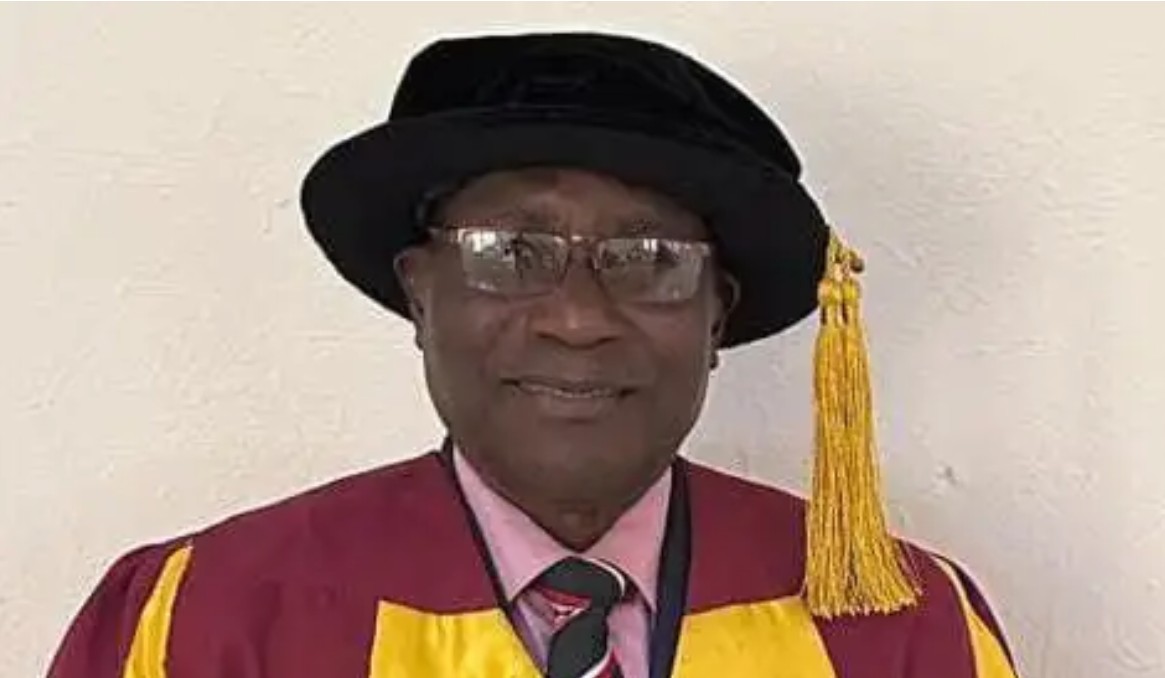506
By Daniel Adaji
The Chairman of the Council of Registered Builders of Nigeria (CORBON), Dr. Samson Opaluwah, has urged young professionals to lean on faith, embrace innovation, and prioritise sustainability as they enter a nation grappling with complex socio-economic pressures.
He delivered the charge on Friday during his convocation address at Bingham University, Karu, where he told new graduates that these values are central to rebuilding Nigeria.
Speaking on the theme “Faith, Innovation, and Sustainability: Building a Resilient Future for Nigeria,” he reminded the audience that the country they are stepping into faces enormous challenges. He outlined some of the stark realities: a population projected to reach 450 million by 2050, a maternal mortality rate of 993 deaths per 100,000 deliveries, between 10.5 and 20 million out-of-school children, a multidimensional poverty burden affecting 133 million citizens, and a housing deficit estimated at 17–28 million units.
Even so, he insisted the road to national renewal remains open for a generation prepared to think differently. “I firmly believe that by merging our faith with innovative thinking and sustainable practices, we can forge a resilient future for our dear country, Nigeria,” he said.
He placed faith at the centre of citizenship and leadership, describing it as a catalyst for courage.
“Faith is not just a religious virtue; it is the engine of hope and courage. Nigeria’s story demands a generation of people who can believe beyond the limits of what they see,” he added.
He Urged the graduands to move forward with conviction despite uncertainty, he told them: “You may not see the road ahead clearly, but walk it in faith, knowing that God sees what you cannot see.”
Opaluwah linked innovation to identity, saying Nigerians must see themselves as creators. “As children of the Most High, we are called to reflect His creative power Innovation is not just about technology. It is about Kingdom minded problem solving,” he said.
He cautioned that the nation cannot be rebuilt by “recycling old ideas for new challenges,” and encouraged the graduands to develop fresh solutions across technology, agriculture, renewable energy, ministry, business, and community life.
On sustainability, he described it as a Biblical responsibility tied to stewardship. “Sustainability is not only about climate, but also about wise, Godly stewardship of resources, relationships, time, and Truth,” he said, urging Nigerians to see themselves as caretakers of God’s creation.
He highlighted how faith-driven innovation is already shaping parts of the country’s development landscape, pointing to figures such as Folorunsho Alakija, Cosmas Maduka, Dr. Ernest Madu, and Dr. Anne Bassey. According to him, their careers show how Christian values can influence business, philanthropy, and healthcare. He added that peacebuilding, environmental stewardship, and digital evangelism are among the emerging fields where Christian innovators are leaving their mark.
Opaluwah also used the forum to outline CORBON’s work in strengthening professional ethics, modernising building practices, and embedding sustainability in construction. He said the council has tightened its code of conduct for registered builders, expanded training in ethical leadership, and broadened its research collaborations locally and internationally.
He highlighted the MoU with the Chartered Institute of Building (CIOB); the rollout of the Builder’s Management Portal (BuMaP) and iReg digital platforms; and the introduction of training programmes focused on sustainable construction.
He added that CORBON’s push for sustainability includes green-building advocacy and training partnerships with organisations such as GIZ, which has supported the training of 50,000 artisans. The council, he noted, is also active in national policy discussions on sustainable urban development and disaster risk reduction.
Opaluwah encouraged the graduands to nurture prayer, discipline, curiosity, courage, and emotional resilience as they step into the world of work.
He urged them to reflect on two questions: “How can I solve a challenge in my community?” and “How can I make life better for others through business, ideas, ministry, advocacy, etc.” He stressed that their professional success must go hand-in-hand with faithfulness, stewardship, and responsibility.
He told the new graduates to face the future without fear. “Therefore, go and build the future, not just with bricks and blueprints, but with the Spirit of God!”



